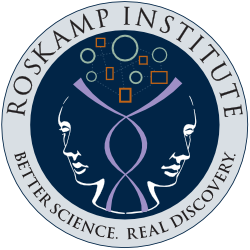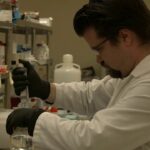February 24, 2021
Sarasota, Fla.— The Roskamp Institute has become an Animal Care Facility for the National Aeronautics and Space Administration (NASA). On the International Space Station, astronauts experience a number of changes that could affect their health. Understanding these effects of microgravity and how to counteract them will be vital to a successful future for humans in space. Working with model organisms, such as rodents, can help scientists gain insight into the likely effects of microgravity on the human body. For several decades now, NASA has been conducting rodent research in space, and The Roskamp Institute is now providing support for such projects being carried out on the International Space Station. The first mission with which the Roskamp Institute was involved launched rodents to the space station on December 6th, 2020, a mission successfully completed with the rodents’ return in January 2021. The contract calls for the Institute to support several missions per year over the next four years.
Dr. Fiona Crawford, Roskamp Institute CEO, said, “We are delighted to be working with NASA on this critical research which is of such global significance. Significant areas of our facility were converted to provide the necessary infrastructure to become a new Animal Care Facility for NASA, and Roskamp staff work directly with the scientific teams for each Space Station project. Everyone at Roskamp is excited to be able to provide support for this pioneering work”.
Dr. Mike Mullan, Roskamp Institute Executive Director, added, “Receipt of the competitive contract by the Institute to support the NASA missions speaks to the capabilities, expertise and commitment of our staff to deliver critical scientific programs. The Roskamp Institute is a platform for such advancements, and we expect many more such milestones as the Institute continues to grow”.

